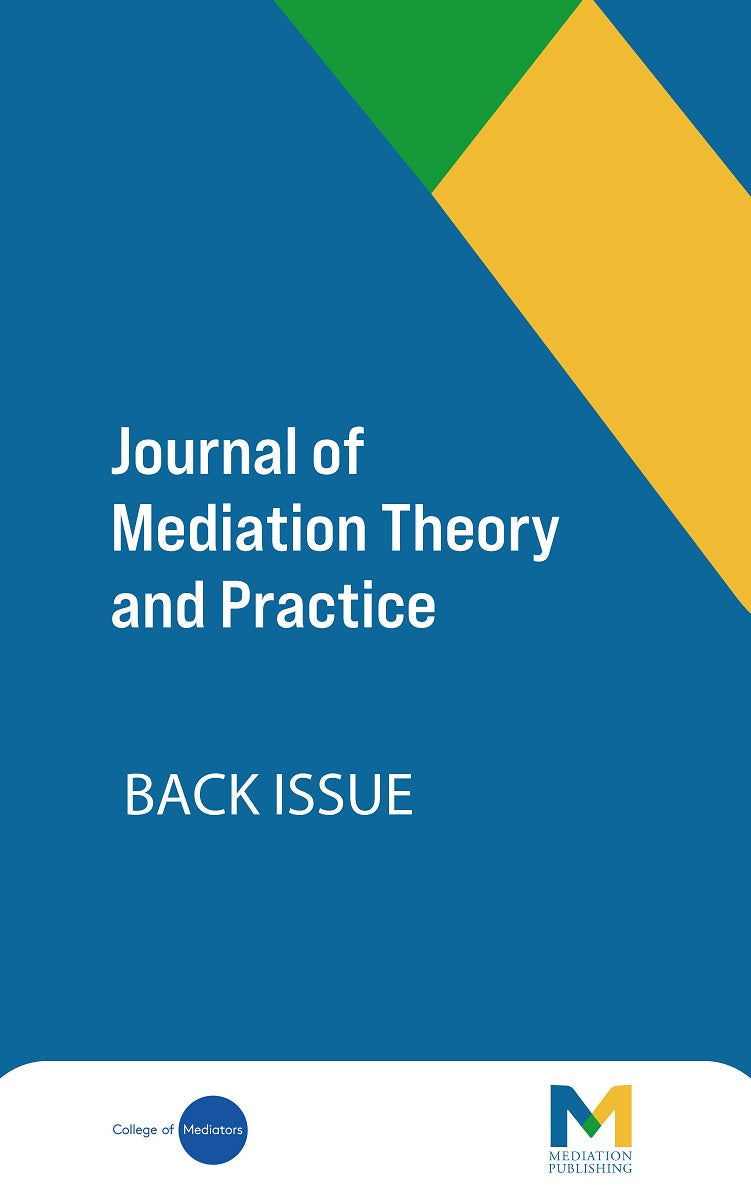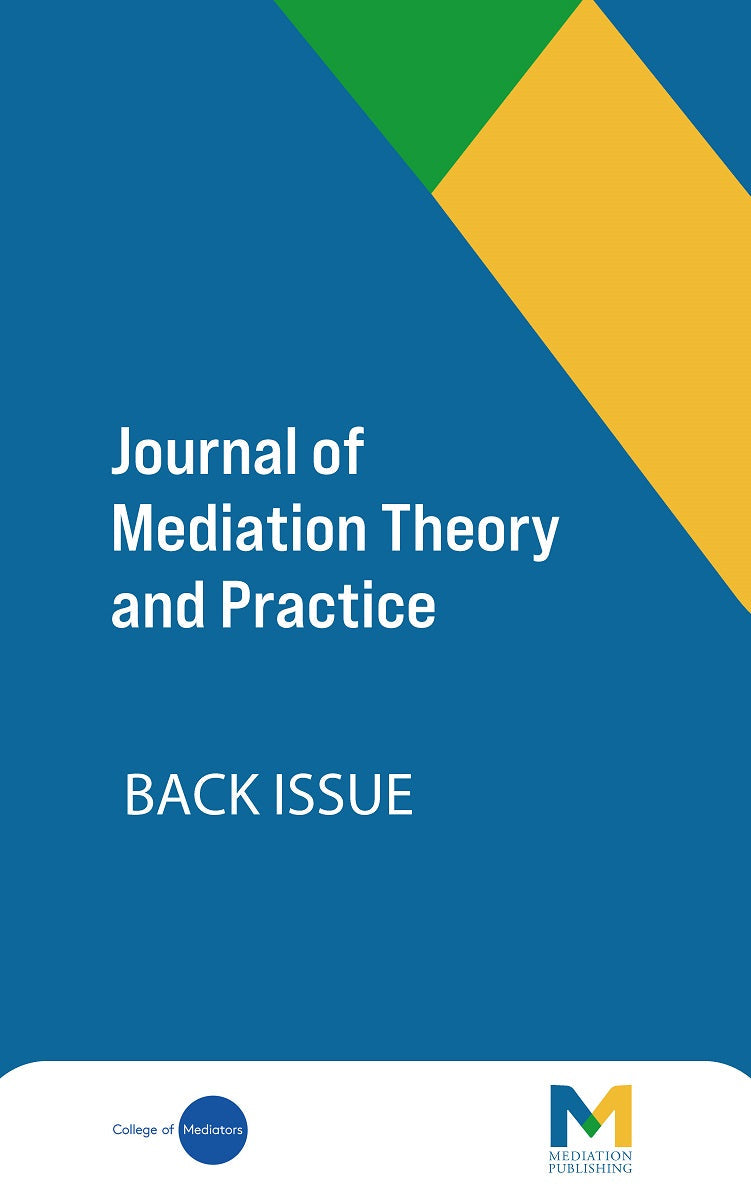Mediation Publishing
Journal of Mediation Theory and Practice Back Issues: 2020
Journal of Mediation Theory and Practice Back Issues: 2020
Regular price
£30.00 GBP
Regular price
Sale price
£30.00 GBP
Unit price
per
Tax included.
Shipping calculated at checkout.
Couldn't load pickup availability
The back issue(s) for the year above for the Journal - Mediation Theory and Practice.
These issues were published by Equinox Publishing and will be despatched promptly after order, sometimes separately to other items you might order.
Individual articles are also available for purchase by download separately through the title links.
Contents for 2020
Case Studies: Jo O’Sullivan and Stephen Anderson, drawing upon their practice experience, reflect on two disputes they mediated using online means of communication.
First Case Study: In Hybrid Mediation and Zoom O’Sullivan discusses handling a dispute which she characterises as hybrid mediation because it involved a combination of civil and family models of mediation, rela-tional mediation, and using Zoom. She reflects on the processes, the parties and also on the role of the solicitors supporting the parties in disputes.
In the Second Case Study Online webcam mediation Anderson considers some technical issues that arose during an online in-person hybrid family mediation involving a former senior police officer and her husband. He offers insights into the manner in which technical issues concerning access to the Internet and technology might play a significant impact on power imbalances between the parties. He concludes noting that limited access to technology can exacerbate already existing power imbalances.
This issue also includes two research articles.
The first, Mediation and the police is by Cynthia- Lee Williams and examines the mediation selection process of police oversight agencies in the USA. Specifically, this study considers the long-standing tension experienced between the police and certain groups (e.g., minorities, youths, and residents of disadvantaged communities) and unearths the groups are more or less likely to meet with officers to resolve police complaints. The data, obtained from the New York City Civilian Complaint Review Board and United States Census, allow for an analysis of complainant demographic and neighbourhood character-istics. Interestingly, the results of this study demonstrate that minorities are more likely to select mediation.
The second research article is Reviving the 'new handshake' in the wake of the pandemic by Amy Schmitz and explores the poten-tial for ODR in settling consumer disputes arising from eCommerce. Building on her book The New Handshake co-authored with the ODR pioneer Colin Rule, Schmitz observes that face-to-face dispute resolution can be costly in terms of time and money, and even dangerous in these times of COVID-19. She proposes that a well-designed ODR system can incorporate business and consumer commonalities that help parties to reach win–win solutions for e-commerce disputes. While she acknowl-edges that not all ODR is fair and efficient, that the digital divide remains a concern and that the internet undoubtedly generates vulnerabilities for consumers, she explains that online communications and ODR also cre-ate opportunities for consumer empowerment. She argues that the time is right to take advantage of those opportunities and create a unified ODR system that provides fast and fair resolutions worldwide. The article dis-cusses ideas for such a system to create a ‘new handshake’ that inspires trust in e-commerce.
Note: Complete Sets of Back Issues for the Journal up to 2023 are available here (8 issues).
Shipping & Returns
Shipping & Returns
We ship worldwide.


